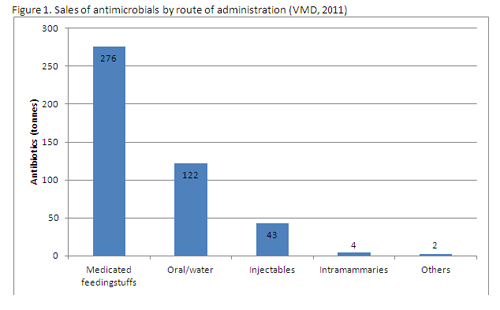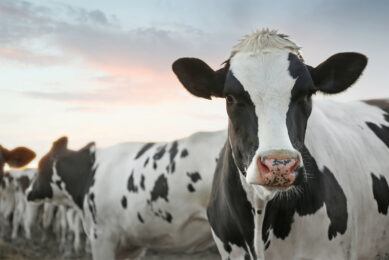Conflicts of interest – should vets dispense medicines?

One of the European Commission’s Actions to fight antimicrobial resistance was to “Strengthen the regulatory framework on veterinary medicines and medicated feed.” Does this mean that they are considering stopping vets dispensing antibiotics?
One of the concerns expressed in the antibiotic debate is that vets have a “conflict of interest” – when they use antibiotics they make money out of selling them to the client and this causes them to try to sell even more. In Denmark, they stopped vets from supplying antibiotics and farmers apparently have to go down the road to the pharmacist to pick up the prescription medicines.
Does this make sense for most countries in the EU? The pharmacist is still going to make money on supplying the medicines – they will not do it for nothing. Also the Danish vet reportedly has to visit the pig farm on a monthly basis. The vets appear to be quite happy with this and this has maintained if not improved their level of service to the farmers – but the farmers have to pay for this extra service. Do they want this extra cost?
Also, will this apply just to antibiotics or will it apply to all medicines? Will pharmacists actually be interested in the business and stock all the additional medicines and vaccines etc that are required? If it is just for antibiotics, will they want to handle all the premixes, which are very bulky, as well? In the UK, 62% (276/447tonnes) of all antibiotics used in animals goes into the feed. Most of this is not supplied via the vet but directly from the companies to the feed mills and supplement manufacturers and the vet only writes the prescription. It is mainly the other 38%, i.e. the soluble and injectable products, which the vets supply.
Talking to farm animal practitioners approximately 70% of their income comes from sales of medicines, which is significant. Without this, it is likely that the number of pig vets would decline further and certainly in the more remote areas of the country, it is getting difficult to get a vet to visit – especially to cattle farms. It is more lucrative to run a pet animal clinic, where the animals come to you and they have insurance.
In the UK, a vet has to write a prescription if asked, so that the client can shop around for the cheapest drug supplier. Generally, it has been the small animal client that has done this but inconvenience is a major factor, so uptake has been relatively small. However, there has been an increase in internet pharmacies for more repeat medicines, but their regulation is another issue. We also don’t want the return of the ‘Van men’ in Ireland or the ‘Autobahn vets’ in Germany, peddling drugs from the backs of their vehicles. Strong competition is there, just between practices and farmers can and do switch. This can lead to undermining of the vet/client relationship, which is usually quite strong between farmers and vets, working on a day-to-day basis.
In the EC document it also highlights an action to “strengthen infection prevention and control in healthcare settings.” The vet is the right person to coordinate this and having a full access to the armoury of medicines is one of the ways this can be achieved, as long as they are used responsibly.
What are your views?











